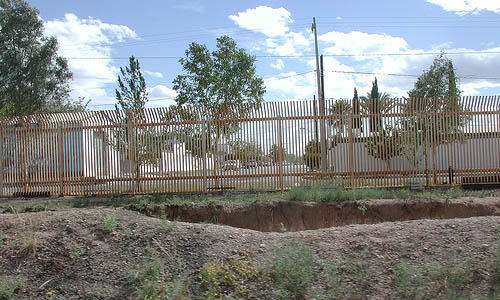
When planning a trip to Canada, it’s important to be prepared and ensure that you have all the necessary documents in order to cross the Canadian border smoothly. Whether you’re traveling for leisure, business, or any other purpose, having the right paperwork in hand will save you from unnecessary delays and complications. In this article, we will guide you through the essential documents you need for crossing the Canadian border, ensuring a stress-free journey.
What Documents Do I Need for Crossing the Canadian Border?
To enter Canada, you must have certain documents that establish your identity, citizenship, and purpose of travel. Here are the key documents you need:
- Valid Passport: A valid passport is a must when crossing the Canadian border. Ensure that your passport is not expired and check the requirements for validity based on your country of citizenship. It’s advisable to have a passport with at least six months of validity remaining.
- Visa or Electronic Travel Authorization (eTA): Depending on your nationality, you may need a visa or an Electronic Travel Authorization (eTA) to enter Canada. Visit the official website of the Government of Canada to check if you require a visa or an eTA and apply accordingly.
- Proof of Citizenship: Carry proof of your citizenship, such as a birth certificate or citizenship card, to establish your eligibility to enter Canada. Permanent residents of Canada should carry their permanent resident card (PR card) or permanent resident travel document (PRTD).
- Vehicle Registration (if applicable): If you’re planning to drive your vehicle into Canada, ensure you have the vehicle registration document, proving ownership or authorization to drive the vehicle.
- Valid Driver’s License: If you intend to drive in Canada, make sure you have a valid driver’s license. International visitors can use their valid driver’s license from their home country or an International Driving Permit (IDP).
- Travel Itinerary: Prepare a detailed travel itinerary that outlines your plans in Canada, including accommodation, transportation, and activities. This will help border officers understand the purpose and duration of your visit.
- Letter of Invitation (if applicable): If you’re visiting Canada for a specific event or to meet someone, a letter of invitation from the host may be required. The letter should include details about the host, purpose of the visit, and duration of stay.
- Proof of Financial Means: Carry sufficient proof of funds to cover your expenses during your stay in Canada. This could include bank statements, credit cards, or traveler’s checks.
- Medical Insurance: While not mandatory, having travel medical insurance is highly recommended to cover any unforeseen medical expenses during your trip.
- Prescription Medications: If you’re carrying prescription medications, ensure you have the necessary documentation, such as a doctor’s prescription or a letter explaining the need for the medication.
These are the essential documents required for crossing the Canadian border. It’s important to note that additional documents may be necessary depending on your individual circumstances and the purpose of your visit. Always check the official website of the Government of Canada or consult with the nearest Canadian embassy or consulate for the most up-to-date information.
Frequently Asked Questions (FAQs)
Q: Do I need a visa to enter Canada?
A: The need for a visa depends on your nationality. Some countries have a visa-exempt status, while others require a visa or an Electronic Travel Authorization (eTA). Visit the official website of the Government of Canada to check the requirements based on your citizenship.
Q: Can I use my driver’s license from my home country in Canada?
A: Yes, you can use your valid driver’s license from your home country to drive in Canada. However, it’s recommended to carry an International Driving Permit (IDP) along with your driver’s license for translation purposes.
Q: What happens if my passport expires soon?
A: To enter Canada, your passport should be valid for the duration of your stay. It’s advisable to have a passport with at least six months of validity remaining to avoid any complications at the border.
Q: Can I bring my pet with me to Canada?
A: Yes, you can bring your pet to Canada, but there are specific requirements and documents that need to be fulfilled. Check the official website of the Government of Canada for the regulations and necessary paperwork for bringing pets.
Q: Is travel medical insurance mandatory for visiting Canada?
A: Travel medical insurance is not mandatory, but it is highly recommended. It provides coverage for any unexpected medical expenses and offers peace of mind during your trip.
Q: What should I do if I have dual citizenship?
A: If you have dual citizenship, you should enter Canada using your Canadian passport. It’s important to note that Canadian citizens must always enter and exit Canada using a Canadian passport.
Conclusion
Crossing the Canadian border requires proper documentation to ensure a smooth and hassle-free experience. Make sure you have a valid passport, any required visas or eTAs, proof of citizenship, and other supporting documents based on your individual circumstances. Remember to check the official website of the Government of Canada for the most up-to-date information and requirements. By being well-prepared with the right documents, you can enjoy your journey to Canada with peace of mind.




